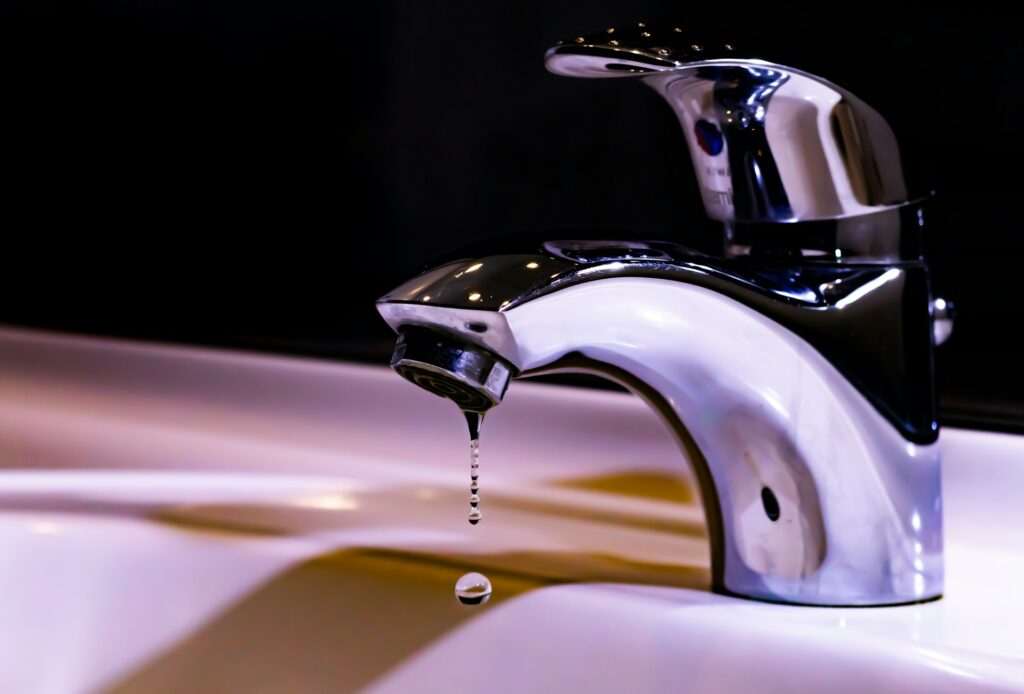
Modern homeowners are discovering that sustainable living starts with the systems we use every day. Your plumbing system offers one of the most impactful opportunities to reduce your environmental footprint while cutting utility costs. Green plumbing solutions have evolved far beyond simple conservation tips, now encompassing innovative technologies and smart design choices that benefit both your wallet and the planet.
This comprehensive guide explores practical strategies to make your home’s plumbing more environmentally responsible. From water-efficient fixtures to advanced filtration systems, you’ll discover actionable solutions that deliver measurable results. Whether you’re planning a bathroom renovation or seeking simple upgrades, these eco-friendly approaches will help you create a more sustainable home environment.
Water Conservation Starts With Smart Fixtures
Low-Flow Showerheads and Faucets
Traditional showerheads can use up to 2.5 gallons per minute, while water-efficient models reduce this to 1.5 gallons without compromising water pressure. Modern low-flow designs incorporate air infusion technology, creating a satisfying shower experience while dramatically reducing water consumption.
Kitchen and bathroom faucets equipped with aerators can cut water usage by 30-50%. These simple devices mix air with water, maintaining a strong flow while using less water overall. Many models include automatic shut-off features that prevent waste during daily activities like brushing teeth or washing dishes.
High-Efficiency Toilets
Older toilets can use 3.5 to 7 gallons per flush, while high-efficiency models operate effectively with just 1.28 gallons. Dual-flush systems offer even greater flexibility, allowing users to choose between a full flush for solid waste and a reduced flush for liquid waste.
Consider upgrading to pressure-assisted toilets, which use air pressure to enhance flushing power while maintaining water efficiency. These systems provide superior performance compared to gravity-fed models while using significantly less water.
Advanced Filtration Systems Reduce Waste
Whole-House Water Filtration
Installing a comprehensive filtration system at your home’s main water line eliminates the need for single-use plastic bottles and reduces chemical exposure. These systems remove chlorine, sediment, and other contaminants while preserving beneficial minerals.
Carbon filtration technology effectively removes taste and odor issues without the ongoing environmental impact of disposable filters. Many systems include recyclable components and require minimal maintenance, making them both eco-friendly and cost-effective long-term solutions.
Point-of-Use Filtration Options
Under-sink filtration systems provide clean drinking water directly from your kitchen tap, eliminating bottled water dependency. Reverse osmosis systems remove up to 99% of contaminants while producing minimal waste water compared to older technologies.
Refrigerator water filters and countertop units offer convenient alternatives for renters or those seeking flexible solutions. These systems typically use replaceable cartridges that can be recycled through manufacturer take-back programs.
Smart Technology Enhances Efficiency
Leak Detection Systems
Water leaks waste billions of gallons annually and can cause significant property damage. Smart leak detection systems monitor water flow throughout your home, sending alerts to your smartphone when unusual patterns indicate potential problems.
Advanced systems can automatically shut off the water supply when major leaks are detected, preventing costly damage and water waste. These devices pay for themselves through reduced utility bills and avoided repair costs.
Smart Water Heaters
Tankless water heaters provide hot water on demand, eliminating the energy waste associated with maintaining large tanks of heated water. These systems can reduce energy consumption by 20-30% compared to traditional tank models.
Smart controls allow you to optimize heating schedules based on your family’s usage patterns. Some models include recirculation pumps that minimize water waste while waiting for hot water to reach fixtures.
Sustainable Materials and Installation Practices
Eco-Friendly Pipe Materials
PEX (cross-linked polyethylene) piping offers excellent durability while using fewer resources during manufacturing compared to copper. These flexible pipes reduce the need for joints and fittings, minimizing potential leak points and installation waste.
Recycled content pipes made from post-consumer materials provide another sustainable option. Many manufacturers now offer products with significant recycled content without compromising performance or longevity.
Green Installation Techniques
Professional plumbers increasingly use trenchless repair methods that minimize excavation and landscape disruption. These techniques reduce project waste and preserve existing hardscaping and vegetation.
Water-efficient installation practices include proper pipe sizing to optimize flow rates and pressure. Correctly sized systems reduce energy consumption while ensuring adequate performance throughout your home.
Greywater and Rainwater Harvesting
Greywater System Benefits
Greywater systems capture water from sinks, showers, and washing machines for irrigation use. This recycled water can reduce outdoor water consumption by 30-50%, particularly valuable in drought-prone regions.
Modern greywater systems include filtration and storage components that make installation and maintenance straightforward. Many systems integrate seamlessly with existing plumbing infrastructure with minimal modifications.
Rainwater Collection Solutions
Rainwater harvesting systems collect precipitation from roofs and other surfaces for landscape irrigation. These systems reduce stormwater runoff while providing free water for gardens and outdoor cleaning tasks.
Storage tanks range from simple rain barrels to sophisticated underground cisterns with pumping systems. Proper filtration ensures the collected water remains clean and suitable for its intended uses.
Maintenance Strategies for Long-Term Sustainability
Preventive Care Protocols
Regular maintenance extends the life of eco-friendly fixtures and systems while maintaining optimal performance. Simple tasks like cleaning aerators and checking for leaks prevent small issues from becoming major problems.
Annual professional inspections identify potential efficiency improvements and ensure systems operate as designed. Many green plumbing components last longer than traditional alternatives when properly maintained.
Seasonal Optimization Tips
Adjusting water heater temperatures seasonally can reduce energy consumption without affecting comfort. Lowering settings during warmer months and optimizing during winter provides year-round efficiency gains.
Winterizing outdoor fixtures and irrigation systems prevents damage while conserving water during dormant seasons. Proper preparation ensures systems remain efficient when usage resumes.
Creating Your Sustainable Plumbing Action Plan
Implementing eco-friendly plumbing solutions requires careful planning and prioritization. Start by assessing your current water usage patterns and identifying areas with the greatest potential for improvement. Simple upgrades like low-flow fixtures and leak detection systems provide immediate benefits while preparing for more comprehensive improvements.
Consider working with certified green plumbers who understand sustainable installation practices and can recommend region-specific solutions. Many utility companies offer rebates for water-efficient upgrades, making these investments even more attractive.
To learn more about specific products and installation requirements, consult with local professionals who can assess your unique situation. The combination of water conservation technologies, eco-friendly fixtures, and smart maintenance practices creates a comprehensive approach to sustainable home plumbing that benefits both your household and the environment.
Last modified: August 7, 2025








